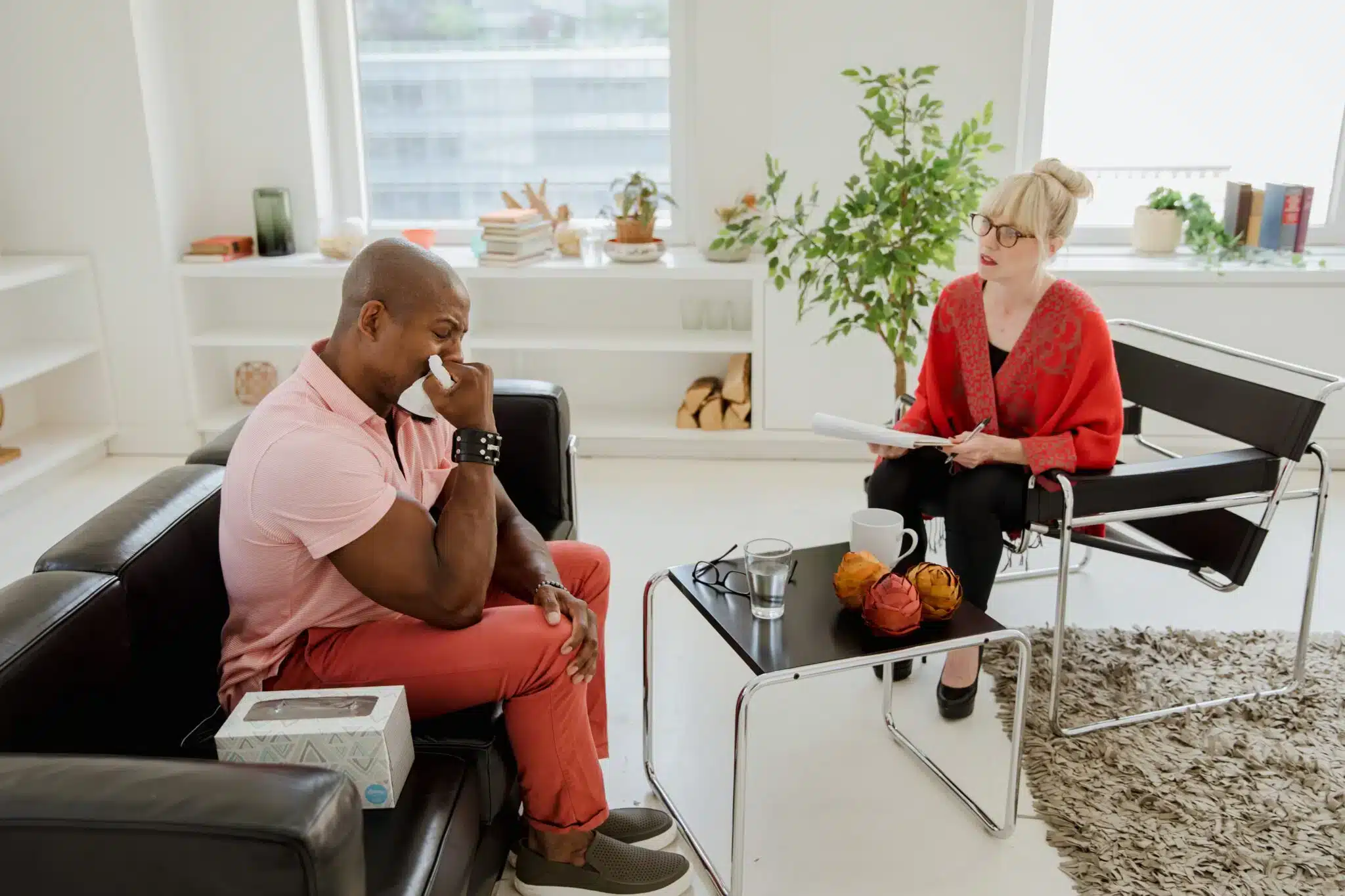
- About Us
-
-
About Addiction Interventions
- About Us
- Why Choose Us
-
-
- Family Intervention Services
- Resources
-
-
Addiction
- Alcohol Detox
- Drug Detox
-
Take a Quiz
- Intervention Quiz
- Codependency Assessment
-
-
- Contact

Grief is the natural response to loss and is a journey we all embark on at some point in our lives. It is a complex emotional experience that can leave us feeling lost, vulnerable, and profoundly sad.
In such difficult times, we often find ourselves grappling not just with the pain of loss but also with unexpected companions: stress and, in some cases, addiction. Read on to understand this intricate relationship and explore ways to cope with the storm of emotions.
Grief is a universal experience that manifests uniquely in each individual. It’s essential to recognize that grief is not a sign of weakness but a testament to the depth of our love for the person or thing we’ve lost.
The emotions, ranging from sadness and anger to guilt and confusion, can be overwhelming for many individuals. As they surge, they can trigger stress, amplifying the pain we feel.
When we experience grief, our bodies respond to the emotional turmoil as if it were a physical threat. Stress hormones flood our system, preparing us for a fight-or-flight response. This physiological reaction, while essential for our survival, can take a toll on our mental and physical health when prolonged.
The stress-grief cycle becomes a continuous loop, each feeding into the other, making it challenging to break free from the grip of overwhelming emotions.
In the face of unbearable pain, some individuals turn to substances or behaviors to cope. Addiction can take various forms, from alcohol and drugs to gambling or even excessive internet use.
It’s crucial to understand that addiction is not a sign of moral failure but often a misguided attempt to numb the pain and find temporary relief from the overwhelming emotions.
Breaking free from the stress-grief-addiction cycle requires conscious effort and support. Here are some healthy coping strategies to help navigate this challenging journey:
Don’t hesitate to lean on friends, family, or support groups. Sharing your feelings can provide immense relief and remind you that you’re not alone in this journey.
Therapy or counseling can provide a safe space to explore your emotions and develop effective coping mechanisms. A trained therapist can guide you through the process of healing.
Be kind to yourself. Understand that healing takes time, and it’s okay to have moments of weakness. Practice self-compassion and self-care to nurture your emotional well-being.
Channel your emotions into creative outlets like writing, art, or music. Engaging in physical activities like yoga or walking can also help release stress and promote mental clarity.
Identify situations or people that trigger your stress and try to minimize exposure to them. Creating a supportive environment is crucial for your healing process.
Remember, seeking help is a sign of strength, and every step you take towards healing is a testament to your resilience.
In the face of loss, let’s remember that healing is not a linear journey but a series of small steps toward light. Together, with compassion and support, we can navigate this storm and emerge stronger on the other side.
Our compassionate team at Addiction Interventions is here to help your personal healing journey. Reach out now and take the first step toward recovery and emotional well-being.






© 2024. Addiction Interventions. All Rights Reserved